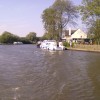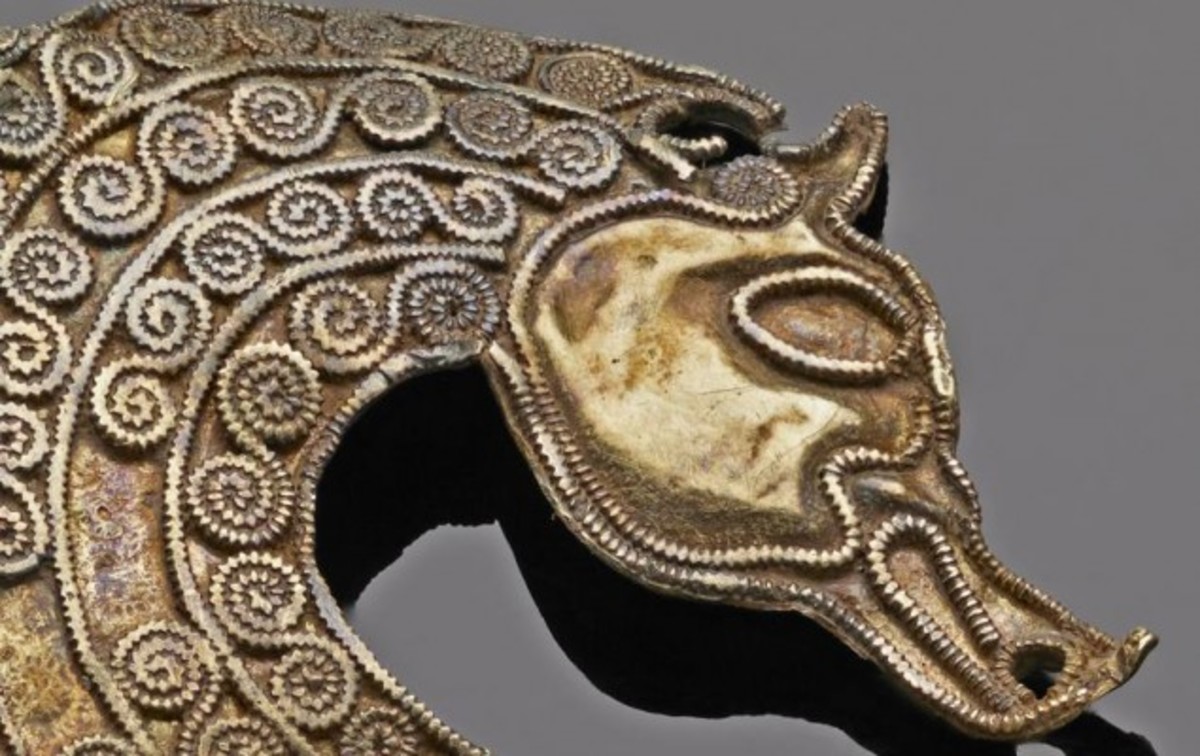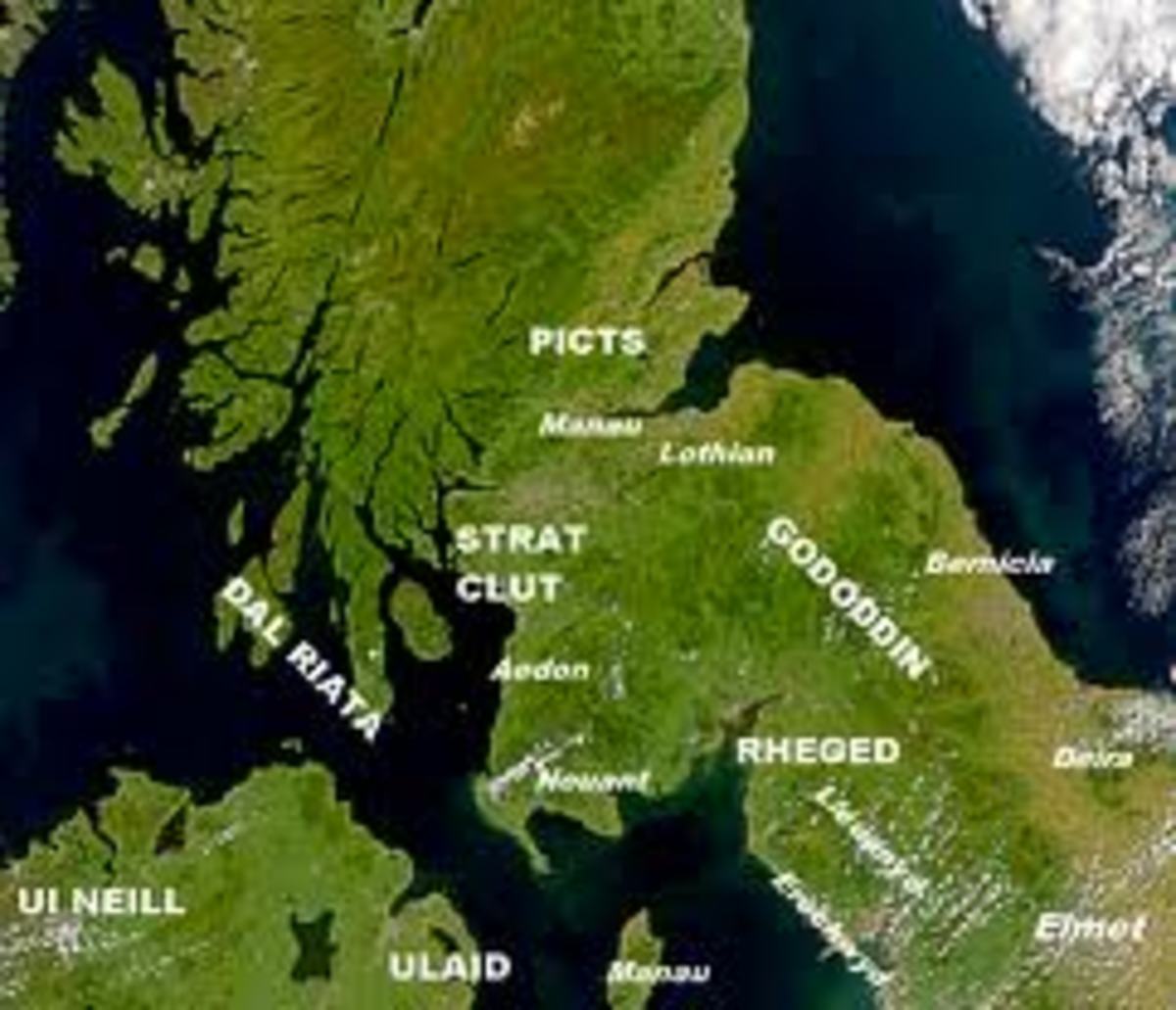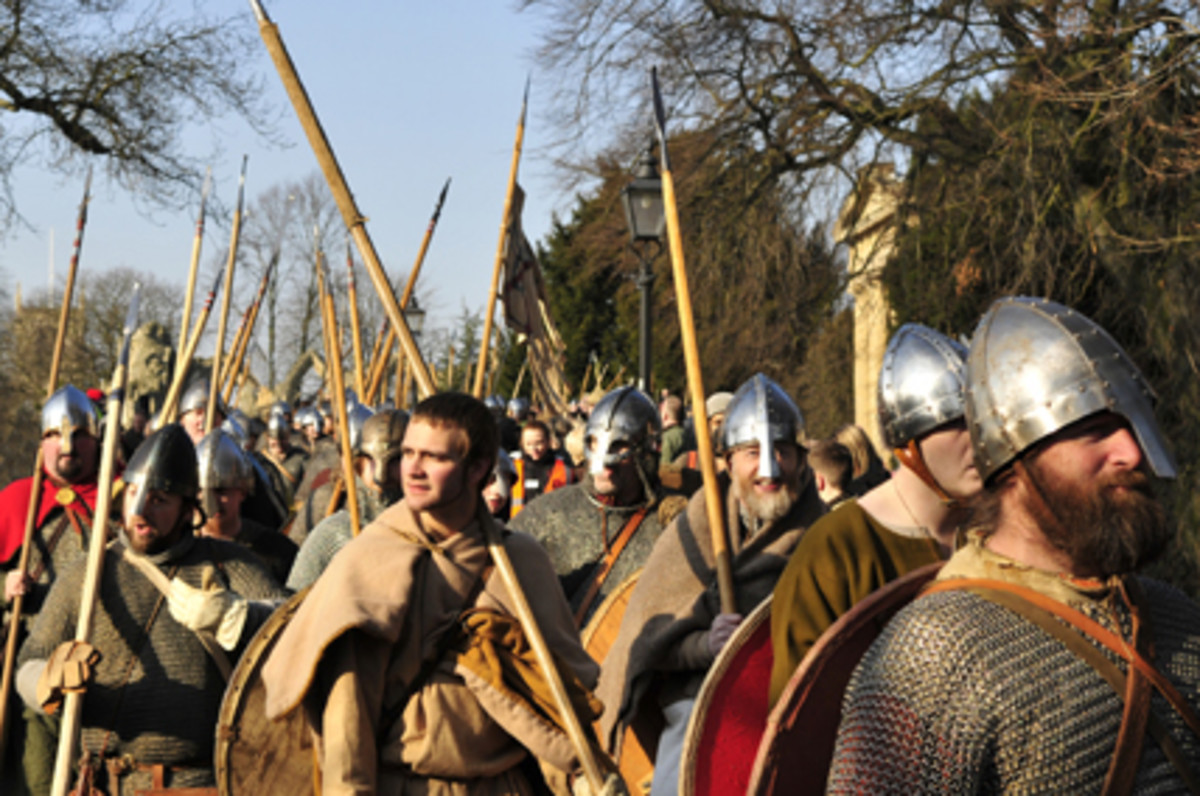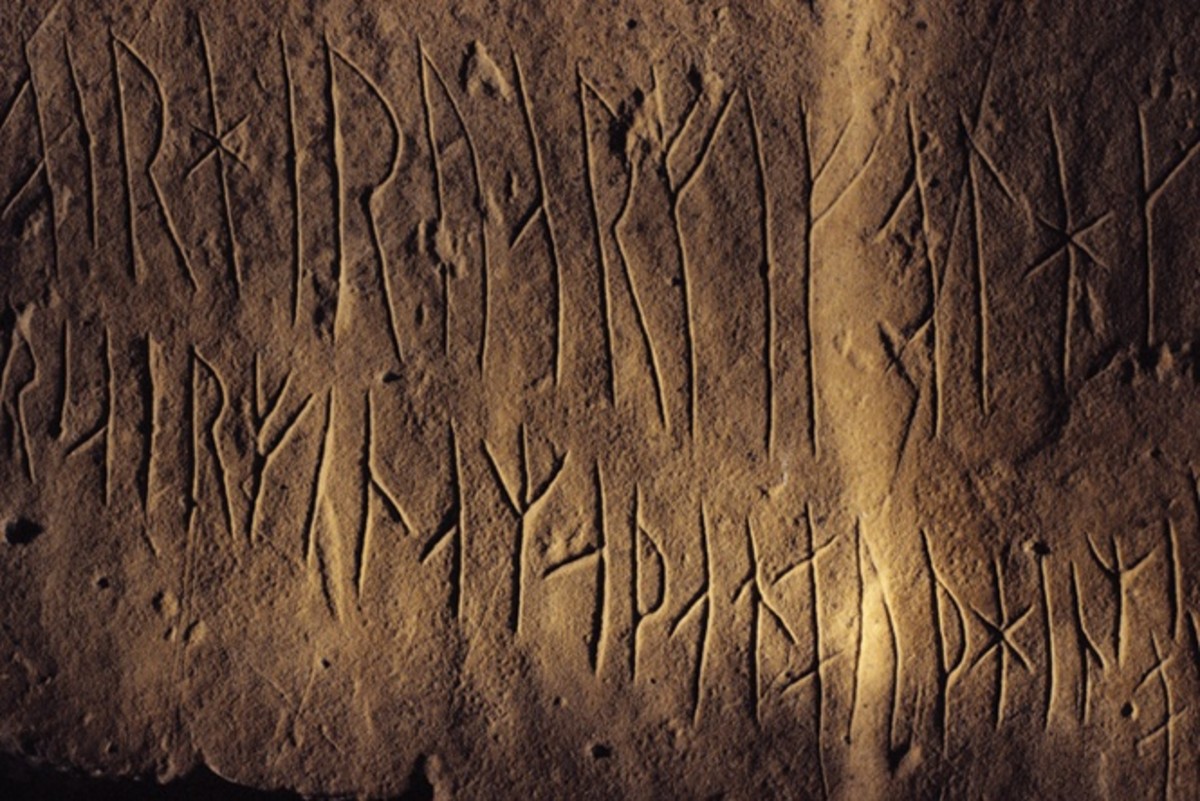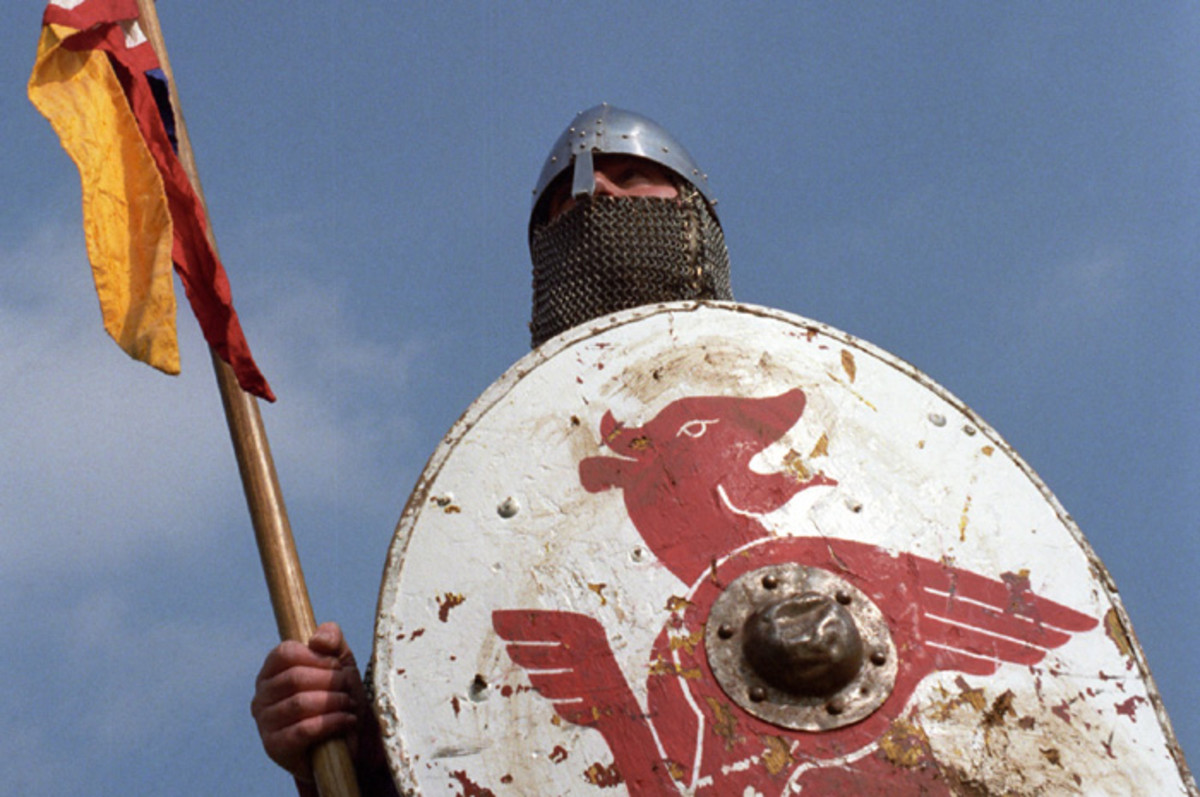- HubPages»
- Education and Science»
- History & Archaeology»
- History of Europe
Early Saxon England- the growth of the heptarchy
England before 1066
Ask most English people what they know about ancient English History and they will probably tell you about William the Conqueror, they might mention someone called Cnut who pushed the waves back or Arthur who burned some cakes- but they won’t be sure what is fact or fiction. I have studied history at Masters level and have continued my reading, out of University, yet I am still in that group asking quite clearly, “what happened before William the Conqueror?”
We know some details about the Saxons because they were a proud race and their Kings insisted that events be written up as Chronicles by the monks once Christianity was established . There are seven surviving chronicle manuscripts which help us trace the Saxon kings back to the fifth century. The chronicles state that the kingdoms were established by three groups, originally from Germany, the Jutes, the Saxons and the Angles. These tribes spread throughout the country populating the land.
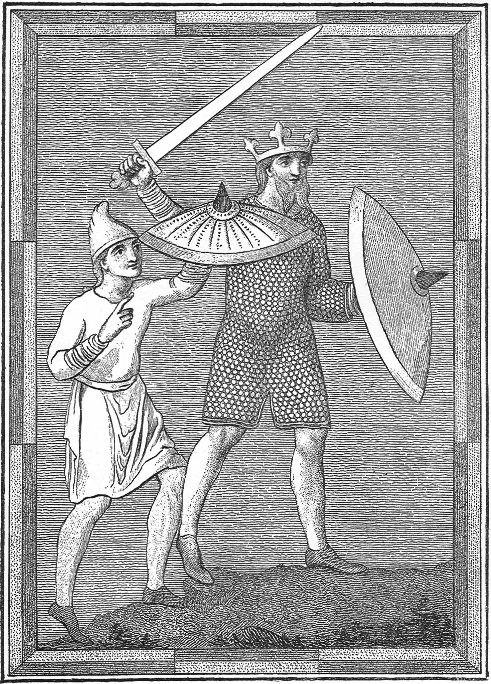
Establishing the seven kingdoms
It appears from the chronicles that after Roman rule finished in about 450AD the Jutish warriors Hengest and Horsa arrived as mercenaries to fight against the Picts in the North, but that once they had won the battle, they refused to leave. It was good land, ripe for easy pickings. Although Hengest was killed in battle, his brother Horsa and his son Aesc won control of Kent and riled there for twenty four years- the first of the English kingdoms.
In 477 AD the first of the Saxons arrived when the Saxon chief Aelle, arrived in Sussex and set about conquering the coast of Sussex- being unable to penetrate the forests of the Weald of Kent. In 1491 it is recorded that the Saxons captured the fortress of Pevensey and slaughtered all the inhabitants. Some co incidence that this was where William the Conqueror landed some 500 years later.
In 495AD Cerdic and his son Cynric landed near Southampton and launched an invasion by the Saxons into Wiltshire and Hampshire which grew to be known as the Kingdom of the West Saxons, or Wessex.
In 1547 a fourth Kingdom was founded in the North by the River Humber, This time it was an Aglen chieftain, Ida, who set up fortifications at Bamburgh.
There were other tribes in England, the East Angles, East Saxons, Middle Saxons, and Mercians, but the Chronicle does not give any details of how they originated. It appears that the invasion of England was slowed between 500 and 545 AD by the action of a brave and mystical king. Was this king the real King Arthur, was there really a Camelot- there is no evidence to refute this.
Each Kingdom had its own King, rather than the one that we have been used to for the last millennium. The duty of the King appeared not to rule a peaceful land but to keep his men occupied in warfare so that they could live on the spoils of war. The title of King passed from father to son with the father selecting the heir in early life to train him but also to avoid any doubts over the succession.
The spread of Christianity in Saxon England
It was the advent of Christianity in the later Sixth and early Seventh century that gave new advisors to the King in the form of bishops and abbots who needed a good relationship with the King to enable them to evangelise amongst the population. These clerical men gave advice, financial and often physical support in wars. The Christians came from two sources. There were those from the Celtic church founded at Iona in 565AD by St Columba and those from Rome founded by St Augustine in 597AD. The ecclesiastical wrangled between themselves trying to establish their form of Christianity in the land until the famous synod at Whitby in 664AD when it was agreed to accept the religion from Rome rather than the Celtic Church. At this conference, reported some 67 years later by Bede in his” History of the English Church and people” King Oswiu of Northumbria cast the winning vote for Rome after persuading all the attending church men that Rome was the Church of St, Peter who was the guardian of the gates of heaven.
The progress of the Christian missions was erratic as with different kingdoms they were met with different responses from Kings. The Kings were often cautious in their acceptance of this new God. For example King Readewald of East Anglia accepted the Christian faith but still kept his pagan faith. He set up a Christian altar in the temple of his pagan Gods, he wanted to see if the new God was better than his old God! Another example is King Edwin of Northumbria who had been attacked by a West Sussex under cover soldier and nearly killed. He wanted to take revenge for this against West Sussex . Prior to setting off the King met with Bishop Paulinus who prayed for his safety and a Northumbrian victory. The Kings forces obliterated those from West Sussex and the King and his people quickly accepted conversion upon his return.
One area where Christianity did not succeed was the Kingdom of Mercia- the centre of England. (actually its where I now live, but I digress) King Penda of the Mercians battled with all his neighbours, defeating and killing two Northumbrian Kings until he himself was killed in 655AD. Interestingly despite being a pagan Bede reported that he tolerated Christianity but he “hated and despised any whom he knew to be insincere in their practise of Christianity once they had accepted it”. However he took no chances with his own son peada and had him baptised before his death and in 655AD Mercia was converted to Christianity.
The Heptarchy
By the fifth century there were seven Kingdoms in Saxon England. This is called the Heptarchy and included Kent, Sussex, Wessex, Essex, Northumbria, East Anglia and Mercia. Always at war with each other the country remained organised as such until the arrival of the Danes some 200 years later. The early Saxon Kings were known as Bretwaldas which meant Rulers of Britain, or rather overlord of the English Kingdoms. It was not an hereditary title but given to the King who was the most successful in his lifetime, able to demand respect and obedience from the other English Kings. All of the Kingdoms, except Essex managed to produce a Brewaldas.
The BreTwaldas did not confine themselves to England. The discovery of the Sutton Hoo ship burial showed that the Bretwaldas had been in receipt of generous gifts from the European continent. King Offa who came some years after Bede was the first King on record to be called the King of the English. He dominated most of the country exploiting them for their goods and land. There are several examples of King Offa acting to confirm charters made by lesser Kings and in 794AD it is said that he had King Ethelbert of East Anglia, beheaded, but no reason is recorded. There are records of King Offa’s foreign policy where he is said to have asked Charlemagne in France to marry his son to Offa’s daughter. Such was Charlemagne’s disgust that an offer was made by an much more inferior man, he shut his ports to English ships and traders. However just before Offa’s death in 796 AD full trade concessions had been restored.
King Offa is best known for Offa’s Dyke which was built as a frontier between the English and the Welsh . Accompanying this physical show of force was his effort to negotiate a third archbishopric for Lichfield which would be in his kingdom of Mercia, balancing the archbishoprics of Canterbury and York. The King also had coins minted, of a quality last seen during the Roman occupation. However the achievements and power of King Offa were confined to his reign, it was his personality and strength of purpose that enabled him to reign supreme over the other kings. In 829 AD King Egbert of Wessex managed to unite the kingdoms of Kent and Wessex and conquering Northumberland. By 839 AD when King Egbert died, he had made Wessex a leading “superpower” in England. This Heptarchy was a loose network where kingdoms would combine to thwart any one becoming too powerful. This state continued until the arrival of the Danes who in a short while changed the landscape of English history forever.
Popular
Northumbria - 2: The Beacon Flares - Second Conversion, Oswald and Oswy to Aeldfrith
Heritage - 52: London & North Eastern Railway at War (2) Side Effects & Heroism, Material Damage Aside...
Conquest - 19: Naming Heirs, Tracking Thorkill's Bloodline and a Shift in Understanding - Did English Suffer After 1066?
